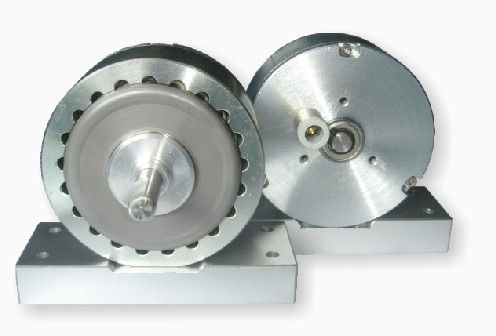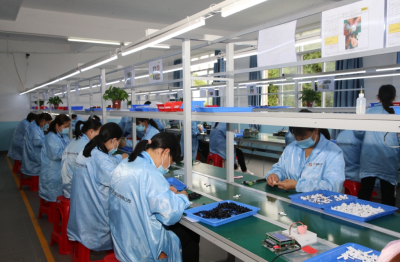In the fast-paced world of home appliances, where consumers demand reliability and manufacturers strive for perfection, the heartbeat of every device lies in its motor. From whisper-quiet blenders to industrial-grade refrigerators, the quality of a motor determines not just functionality but brand reputation. Enter advanced appliance motor testing systems—the unsung heroes ensuring that every spin, hum, and whirl meets the gold standard. Let’s dive into why these systems are reshaping the industry and how they can elevate your production line from good to extraordinary.
------
### THE HIDDEN CHALLENGES OF MOTOR RELIABILITY 🤔🔧
Imagine this: A customer unpacks their brand-new washing machine, excited for its promised “silent operation.” But within weeks, an annoying grind emerges. The culprit? A subpar motor that passed basic quality checks but failed under real-world stress. Traditional motor testing methods often fall short because they focus on superficial metrics—voltage, basic load capacity, or short-term performance. What’s missing? hysteresis brake that mirrors years of use in a controlled environment.
This gap is where advanced motor testing systems shine. By simulating extreme temperatures, variable loads, and continuous operation cycles, these systems predict long-term durability. Think of it as a “time machine” for motors, revealing flaws that could take months or years to surface naturally.
------
### BEYOND THE BASICS: WHAT SETS ADVANCED SYSTEMS APART? 🎯💡
1. **AI-Driven Predictive Analytics**
Modern testing isn’t just about collecting data—it’s about interpreting it. Advanced systems integrate machine learning algorithms to analyze performance trends. For example, if a motor’s temperature rises 0.5% faster than average during stress tests, the system flags it as a potential failure point. This proactive approach lets engineers tweak designs before mass production, saving millions in recalls.
2. **Real-Time Environmental Simulation**
Motors don’t operate in a vacuum. A dishwasher motor faces steam, a vacuum cleaner grapples with dust, and an electric vehicle motor endures vibration. Cutting-edge testing chambers replicate these conditions, exposing motors to humidity, particulate matter, and mechanical shocks. The result? https://us.validynamics.com/ that thrives in the chaos of everyday life.
3. **Energy Efficiency Optimization**
With sustainability dominating consumer preferences, energy consumption is a make-or-break factor. Advanced systems measure not just if a motor works, but how efficiently it does so. By tracking power usage across different speeds and loads, manufacturers can fine-tune motors to meet strict eco-certifications like ENERGY STAR.
4. **Customizable Stress Tests**
One size doesn’t fit all. A blender motor needs different rigor than a medical-grade HVAC system. Modular testing platforms allow engineers to design bespoke trial scenarios—like simulating 10,000 start-stop cycles for a coffee grinder or 24/7 runtime for a commercial freezer.

------
### CASE STUDY: HOW [FICTIONAL COMPANY] REDEFINED QUALITY CONTROL 📈🏆
Let’s look at CoolBreeze Appliances, a mid-sized manufacturer struggling with a 12% return rate on their premium fans. After integrating an advanced motor testing system, here’s what changed:
- **Issue Identified**: Motors overheated after 50 hours of continuous use due to inadequate lubrication distribution.
- **Solution**: The testing system’s thermal imaging detected hotspots, prompting a redesign of the motor’s internal channels.
- **Result**: Returns dropped to 2%, and customer reviews praised the fans’ “unshakable reliability.”
This isn’t just a win for CoolBreeze—it’s a blueprint for any brand aiming to turn quality control into a competitive edge.
------
### THE COST OF IGNORING INNOVATION 💸⚠️
Skeptics might argue, “Our old testing methods work fine.” But consider the hidden expenses:
- **Recall Campaigns**: A single motor defect can trigger recalls costing up to 10x the initial testing investment.
- **Brand Erosion**: Negative reviews spread faster than ever. One viral post about a malfunctioning appliance can tarnish a reputation built over decades.
- **Lost Market Share**: Competitors leveraging advanced systems can outpace you in both quality and time-to-market.
In contrast, investing in modern testing tech slashes long-term risks while boosting ROI through premium pricing and customer loyalty.
------
### FUTURE TRENDS: WHERE MOTOR TESTING IS HEADED 🌐🔮
The next wave of innovation is already here:
- **IoT Integration**: Motors equipped with sensors will stream real-time data to testing platforms, enabling live adjustments during R\u0026D.
- **Edge Computing**: On-site testing units will process complex simulations without relying on cloud delays.
- **Sustainability Metrics**: Systems will auto-grade motors based on recyclability and carbon footprint, aligning with global ESG standards.

Companies that adopt these trends today will lead the market tomorrow.
------
### CONCLUSION: DON’T JUST TEST—EVOLVE 🛠️✨
Advanced appliance motor testing systems aren’t a luxury—they’re a necessity in a world where consumers won’t tolerate “good enough.” By embracing these technologies, you’re not just preventing failures; you’re building trust, sustainability, and a legacy of excellence.
Ready to future-proof your motors? The next era of precision starts now. 🚀🔋
------
[Call-to-Action]
Upgrade your testing infrastructure today. Contact our experts for a free demo and see how 72 hours of simulation can prevent a lifetime of regrets. 💌🛠️
